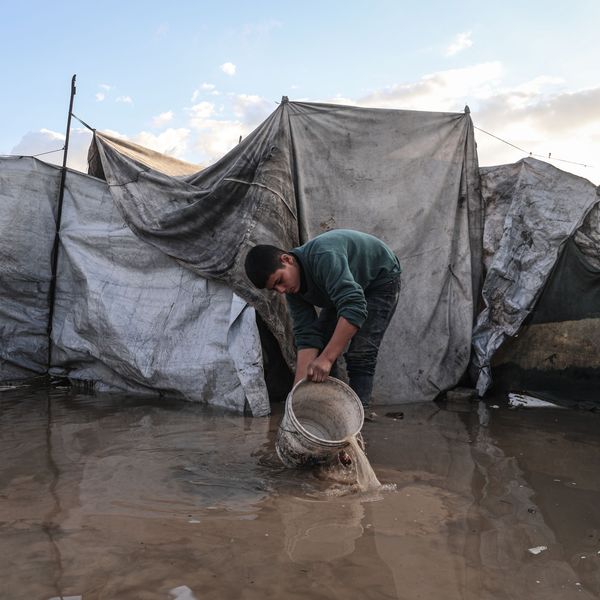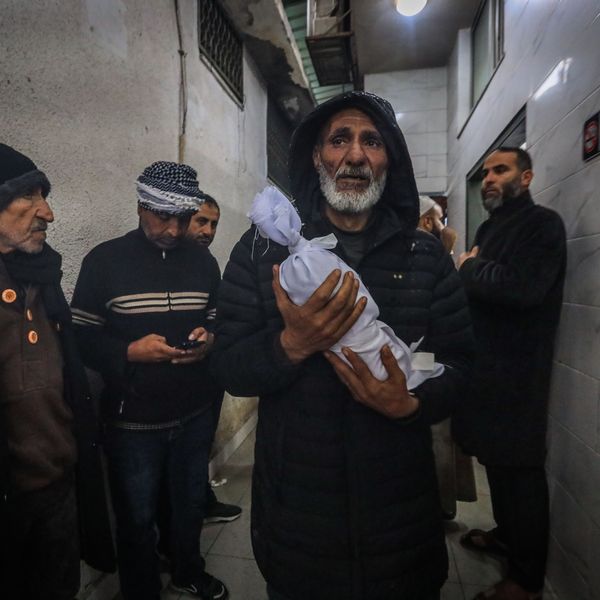Hurricane Matthew's devastation in Haiti has left the nation facing a humanitarian crisis as corporate media shifts its focus to the storm's encroachment onto U.S. shores.
As the brief U.S. news coverage of Haiti dissipates, aid groups on the ground are still struggling to reach the most impacted regions, while residents grapple with flooding, mudslides, and a shortage of shelters. The storm's 145 mile-per-hour winds also took down a bridge, tore the roofs off of houses, and damaged at least one hospital and clinic.
Matthew killed at least 11 people in the Caribbean on Tuesday, with five of those in Haiti, including a 26-year-old man who was attempting to rescue a child from a rushing river, according to the Weather Channel. However, civil protection officials warned that the death toll is hard to calculate due to the extensive damage.
"It's the worst hurricane that I've seen during my life," one official, Fidele Nicolas of Nippes, told the Associated Press. "It destroyed schools, roads, other structures."
Marie Alta Jean-Baptiste, director of the Civil Protection Agency, also said Tuesday, "It's much too early to know how bad things are but we do know there are a lot of houses that have been destroyed or damaged in the south."
The United Nations estimated that 2.3 million people were living in areas impacted by the hurricane, which was the first Category 4 storm to hit Haiti in 52 years, and comes as the nation continues to struggle in the aftermath of a devastating 2010 earthquake and cholera outbreak.
Holly Frew, an emergency communication manager for the aid group CARE USA, said Wednesday, "Haiti just suffered a drought and now has to deal with this. What crops they had were washed away. That will be a concern, helping people get their livelihoods back."
In an op-ed Wednesday, Mark Schuller, an associate professor at Northern Illinois University who has done extensive research on globalization and disasters in Haiti, wrote of the Western media narrative surrounding Matthew's impact in the Caribbean:
Anthropologist Gina Athena Ulysse has inspired a generation of scholars, challenging us with a deceptively simple call: "Haiti needs new narratives." The coverage of this storm is an urgent case for why.
[....] While we outside of Haiti may not be told, grassroots organizations are doing an admirable job. In Cite Soleil, Konbit Soley Leve has offered emergency assistance and Sakala, shelter. Peasants associations in Camp Perrin and all over the South province are welcoming people from Les Cayes, down the hill.
"The storm will leave, the flood waters recede. I hope the world's attention span will last at least a little longer, so that we will finally apply lessons at least Haitian people learned," Schuller wrote.


